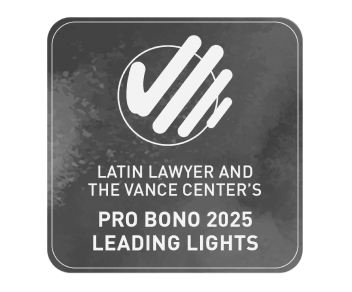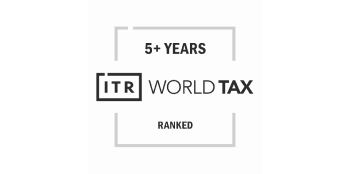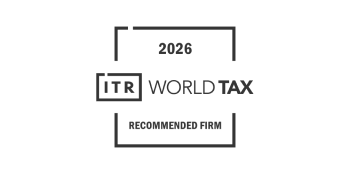.webp)
.webp)

The merger notification regime serves as a key tool for competition authorities to analyze and approve certain mergers before they are completed, thus preventing those that could have anticompetitive effects. Essentially, this is a preventive mechanism.
Economic agents involved in a transaction that (i) qualifies as a “merger” under the Federal Economic Competition Law (LFCE)—a broad concept encompassing, among other things, any union of companies or assets, or change of control; (ii) exceeds any of the thresholds established in the LFCE; and (iii) does not fall under any of the exceptions provided therein (such transactions meeting the criteria in (i) to (iii) are referred to as “Notifiable Mergers”), are required to notify the transaction to the Federal Economic Competition Commission (COFECE) and/or the Federal Telecommunications Institute (IFT, collectively referred to as the “Competition Authorities”) and obtain their approval before proceeding.
Failing to secure authorization before completing a Notifiable Merger constitutes a serious violation of the LFCE, as it prevents the Competition Authorities from analyzing the transaction in advance, thereby hindering their ability to fulfill their constitutional mandate: to protect economic competition and free market access. Such non-compliance can lead to significant penalties, including fines of up to 5% of the annual income of the economic agents required to notify, and in the case of a merger deemed illegal due to anticompetitive effects, fines of up to 8% of the annual income of the involved parties.
It is increasingly common for Competition Authorities to initiate investigations into transactions that were completed without prior approval and subsequently impose the corresponding sanctions. These cases, often referred to as "gun-jumping" cases, involve proceeding with a Notifiable Merger before receiving the necessary approval (analogous to jumping the gun before the starting signal).
There are various reasons why an obligation to notify a Notifiable Merger might be overlooked, ranging from a simple lack of awareness of the LFCE's requirements to highly complex situations involving the specific circumstances of a case, such as interpretative issues regarding notification thresholds or the completion of the Notifiable Merger.
It’s important to note that the majority of cases in which COFECE has sanctioned economic agents for carrying out a Notifiable Merger without prior approval involve instances where a merger notification was indeed made beforehand.
Here are some scenarios where sanctions might be imposed by one or both of the Competition Authorities for completing a Notifiable Merger without securing prior approval. The first scenario covers cases where no prior notification of the merger was made, while subsequent scenarios involve instances where there was a clear and explicit intent to comply with the LFCE.
According to Article 86 of the LFCE, mergers that exceed one or more of the established thresholds must obtain prior approval from the Competition Authorities. These thresholds are set in units of Measurement and Update Units (UMAs), which are updated annually. Consequently, the threshold amounts are adjusted each year. For 2024, the value of the UMA is MXP$108.57.
The threshold analysis must be conducted using the financial information of the involved economic agents contained in their audited financial statements—or internal statements if audited ones are not available—for the fiscal year immediately preceding the one in which the transaction is intended to be carried out. It is equally important to consider the interpretation criteria of the thresholds by the Competition Authorities, including those provided in their respective merger notification guidelines, which, although not binding, are useful for conducting the threshold analysis.
Depending on the specifics of each case, this analysis can be highly complex, requiring an in-depth understanding of the thresholds, knowledge of the Competition Authorities’ criteria, and their precedents to determine how they should be applied to each specific case.
As outlined above, compliance with the merger regime under the LFCE requires a comprehensive and thorough analysis to (i) determine when a Notifiable Merger is involved (i.e., when a transaction qualifies as a “merger,” exceeds thresholds, and does not fall under any exceptions); (ii) ensure that the transaction is completed under the terms authorized by the Competition Authorities; and (iii) avoid actions that could imply the completion of the Notifiable Merger before obtaining the necessary competition approvals.
Failure to comply with these requirements can result in severe penalties for the involved economic agents.
Having a specialized law firm is crucial for handling merger notifications and avoiding sanctions. When planning a transaction, it is essential to conduct a threshold analysis and ensure that no gun-jumping occurs, even when the Notifiable Merger has been notified to the Competition Authorities.
At Mijares, we support our clients from the planning stage of a transaction, analyzing whether there is an obligation to notify it to the Competition Authorities, and throughout the entire process until the completion of the transactions, thereby helping our clients avoid sanctions. Our experience allows us to provide comprehensive and integrated advice to clients seeking both specific advice in economic competition matters and those seeking a full-service approach to their transactional operations. Proper legal advice in economic competition is far preferable to facing hefty fines.
Awards














